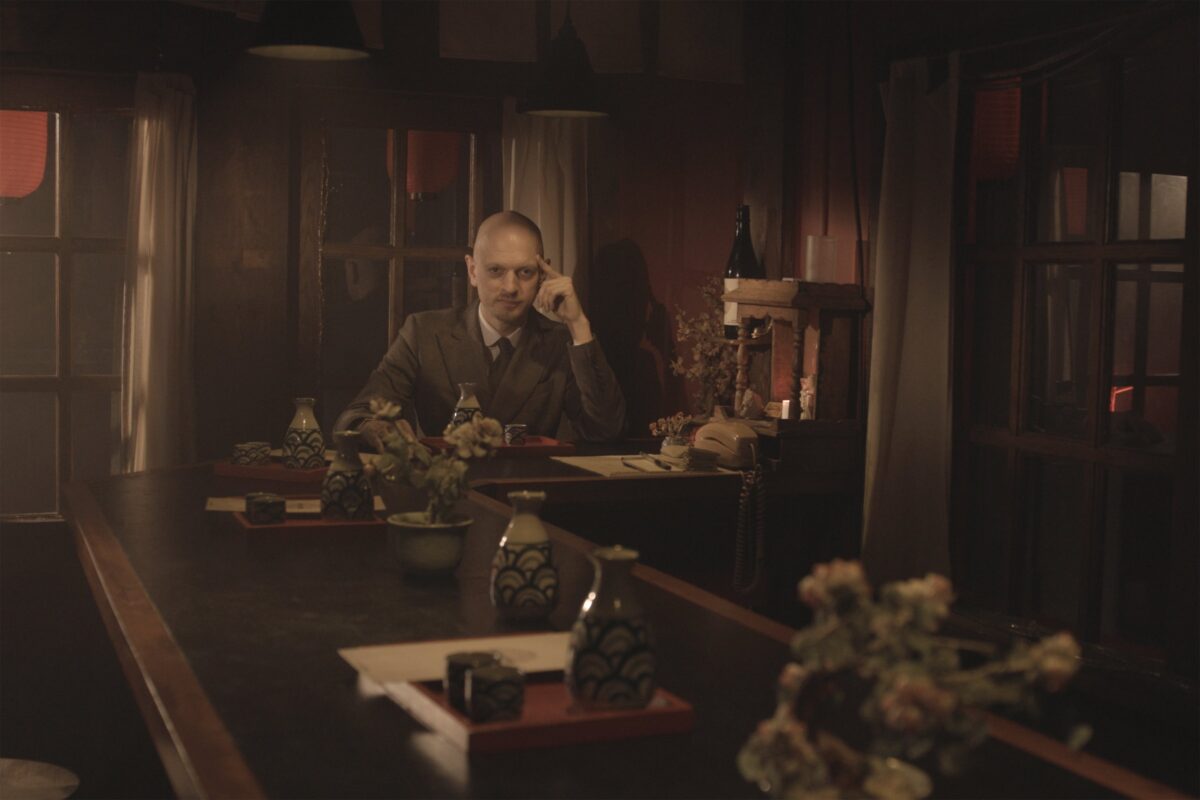I find my way through Troy’s maze of alleyways and come in through the side door. To call the space small would be gross exaggeration; just four place settings fit around the tiny L-shaped bar.
With just a few other guests around, the bartender is cleaning up. I squeeze my way to the end, past a wall covered in cloth squares, past the main door, planting myself on a stool and giving my weary feet some rest.
He clearly has a routine, as though he’s cycled through this eternally: up come the plants, then the shot glasses, then the menus, then the trays. Perhaps I’m too late? He wipes down the bar with a damp cloth from end to end.
A fresh shot glass is pulled from underneath the bar. But rather than fill it, he places it on its side and gives it a spin. Through the windows we can still see the bustle of people passing by – perhaps to the larger, louder bar down the block – as we wait quietly for the glass to settle.
The bottom of the glass points my way. The bartender catches my glance, and beckons me to the center of the bar. We lean in as he takes out a napkin.
“When you reach the end, there are only two things that matter,” he whispers as his red pen flutters over the napkin. “The things that you regret. And the things that you are thankful for.”
He unfolds and refolds the napkin, creating two squares. He points to the one to my left.
“Something you regret.”
He holds his hands over the napkin as shelter as I take the pen and write. He folds the napkin over my writing, then points to the other side.
“Something you’re thankful for.”
Again, I scribble under his cupped hands. I return the pen as he folds the napkin back into a small square and smiles.
“We will take good care of this for you.”
I nod. He raises a bottle.
“One for the road?”
“Please.” It is the only word I’ve spoken in a while.
He pours the clear liquid into a measure, and the measure into the shot glass. I raise the glass in a silent toast, lower my mask, and down the…sake? Grappa? Pisco? Whatever it is lingers on my tongue for minutes.
He rounds the bar with my napkin in hand, approaches the wall covered in cloth squares, and pins it to an open spot.
There is nothing more to be said. The guests filter out; the bartender continues about his business; and after a moment, I take my leave – this time through the front door.
Punchdrunk’s The Burnt City is playing at Woolwich Arsenal in London for the foreseeable future.
PREVIOUSLY:
